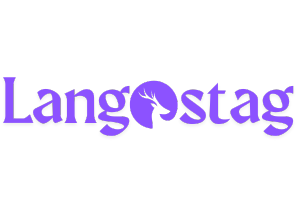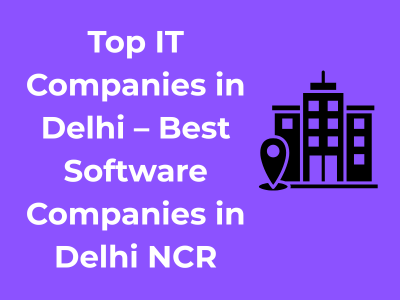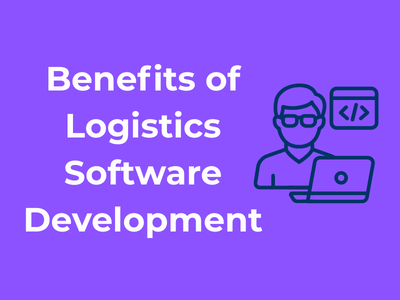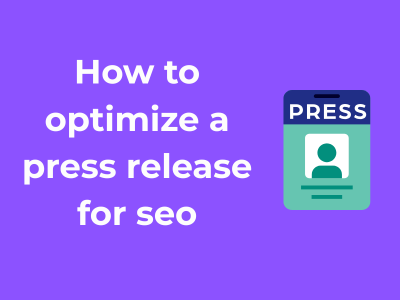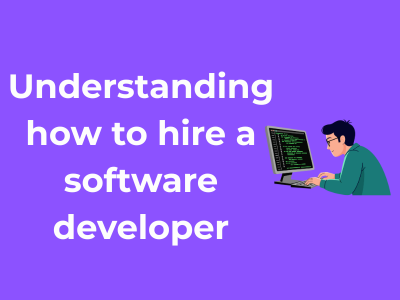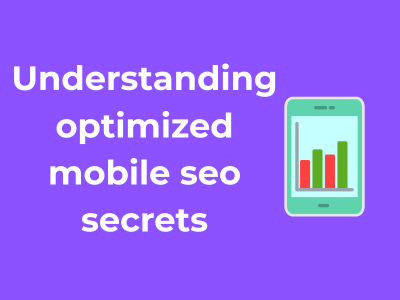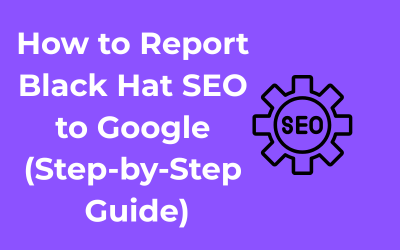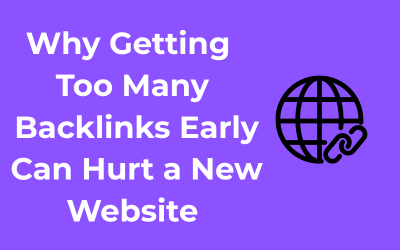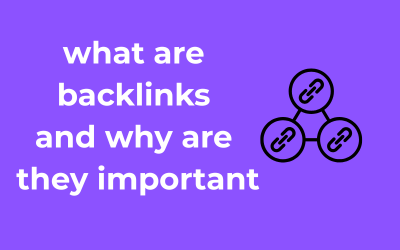Hey there, fellow digital adventurer! Let’s dive into one of the coolest advancements in SEO today- incorporating Artificial Intelligence (AI) into the world of link building. Gone are the days of tediously hunting for backlinks manually. Now, AI simplifies and enhances the process with razor-sharp precision and endless potential.
What is AI Doing in Link Building Anyway?
Great question! In a nutshell, AI has become the secret (or not-so-secret) sauce for any modern SEO strategy, especially when it comes to link building campaigns. It’s all about streamlining the process by using intelligent algorithms to identify high-quality link opportunities, analyze competitors, and personalize outreach strategies. Essentially, AI puts a turbocharger on your efforts, letting you focus on strategy rather than repetitive, time-consuming tasks.
Key Ways AI is Revolutionizing Link Building:
Curious about the specifics? Let’s break it down step by step:
- 1. Identifying Relevant Websites: AI tools can seamlessly scan and analyze vast swaths of the internet to identify websites that align with your niche and have a genuine interest in your content. This means you can stop wasting time pitching to irrelevant sites that won’t bite anyway!
- 2. Competitor Benchmarking: Want to know where your competitors are getting their links from? AI tools can analyze their backlink profiles, helping you spot untapped opportunities and giving you a roadmap for success.
- 3. Crafting Data-Backed Outreach: Forget generic pitches – AI digs deep into audience behaviors and trends to personalize your outreach emails. This boosts your chances of grabbing attention and building meaningful, long-term relationships.
- 4. Predictive Targeting: AI doesn’t just identify good links; it predicts which partnerships will have the most substantial impact. By evaluating domain authority (DA), traffic, and engagement rates, it ensures you’re investing time in high-return outreach.
Tools on the Frontline of AI in Link Building
If you’re new to using AI for link building, here’s a quick rundown of some popular tools that are making waves:
- Ahrefs and SEMrush: These beloved SEO tools now integrate AI to provide more nuanced data and recommendations for backlinking strategies.
- Pitchbox: Throw away those cookie-cutter outreach templates Pitchbox uses AI to craft tailored outreach campaigns, ensuring your approach feels human and relatable.
- LinkHunter: For those overwhelmed by link prospecting, this AI tool scours the web for prospect lists and even helps you build partnerships with reputable sites.
Making the Most of AI in Your Strategy
Alright, here’s the deal: AI isn’t a plug-and-play solution. Success still requires a solid strategy, human insight, and ethical practices to back up the tech. Here are a few savvy tips to keep in mind:
- 1. Combine AI with Human Expertise: Use AI tools to handle big data and analysis, but let your personal touch guide relationship building and creative content. Machines aren’t great at empathy you are!
- 2. Quality Over Quantity: Even with AI, focus on acquiring links from credible, high-quality sources. Don’t let the ease of automation tempt you into spammy link-building tactics.
- 3. Continuously Evaluate Results: The digital landscape evolves rapidly. Use AI’s insights to monitor and tweak your strategy as algorithms, trends, and industries change.
Predictions for AI-Driven SEO Strategies in 2025

Ah, the future of SEO a mix of excitement, curiosity, and maybe just a pinch of uncertainty. With artificial intelligence (AI) already reshaping digital marketing landscapes, it’s not a stretch to wonder what’s next for SEO strategies as we inch closer to 2025. Let’s dive into some bold predictions, shall we?
1. Personalization at an Unprecedented Scale
By 2025, AI’s ability to hyper-personalize will likely be the real game-changer in search engine optimization. Thanks to advancements in natural language processing (NLP) and machine learning algorithms, websites will be able to offer tailored content experiences based on individual users’ behaviors, preferences, and searches. Imagine browsing an e-commerce site where product recommendations feel eerily spot on, or landing on a blog that seems written specifically for you that’s where AI is taking us.
2. Conversational AI-Optimized Search
Remember when you used to type short, choppy keywords into search engines? Well, those days are practically over. By 2025, with the prevalence of voice assistants like Alexa, Siri, and Google Assistant, AI-driven conversational search optimization will take center stage. Websites will need to focus on optimizing content for long-tail, context-rich queries like, “What’s the best way to boost organic traffic in the tech industry?” instead of just “boost traffic tech.” AI will drive this shift, making interactions with search systems feel more natural and fluid.
3. Real-Time SEO Adjustments Using AI
Another revolution we can expect is real-time SEO. Imagine AI tools automatically adjusting your meta tags, headlines, or even entire web pages in response to trending search queries or shifts in user intent. By 2025, AI will be running at lightning speed to ensure businesses stay atop search result pages (or what’s now being called SERPs+). This means less manual tweaking for SEO teams and more focus on strategic decision-making.
4. Visual Search & AI Enhancement
With platforms like Pinterest and Google Lens already leaning heavily into visual search functions, AI will elevate this in 2025. Optimizing for visual search will become just as critical as optimizing for text-based search. Think of AI identifying products in images, logos, or even abstract patterns and directing users to the right websites. Businesses will need to prepare their visuals, alt texts, and image metadata to ride this wave of innovation.
5. Predictive Analytics for Marketing Success
Lastly, predictive analytics will grow more intuitive and powerful due to AI. Marketers will leverage AI to analyze “huge” sets of SEO data and predict trends—often before they arise. For instance, AI might forecast which keywords will likely become popular for a niche audience or anticipate emerging backlinks opportunities. These insights will help businesses stay ahead of the curve, crafting strategies that are not just reactive but proactive.
Transforming Link Quality Assessment with AI

Let’s dive into how AI is revolutionizing the way we assess link quality. No, this isn’t your basic chat about backlinks. It’s a whole new world where algorithms are doing some heavy lifting to make our SEO game stronger and smarter.
Why Does Link Quality Even Matter?
In the vast web of the internet, not all links are created equal. Think of links as recommendations—some are from trustworthy experts, while others might be from shady, unqualified sources. Search engines like Google value quality links because they signal credibility. If people are linking to your site from trusted sources, it’s like a virtual thumbs-up. However, getting it right isn’t always easy. This is where AI steps in to help separate the gems from the junk.
How AI Is Changing the Link Assessment Game
Gone are the days of skimming endless backlink profiles manually. With the advancement of AI, we’re seeing tools that can analyze links faster, smarter, and with fewer human errors. Here are a few ways this is happening:
- Analyzing Context: AI doesn’t just look at the link itself. It dives into the content surrounding it. What’s being said about your site? Is the link embedded in valuable, relevant information or just tossed into a low-grade blog post? Context matters, and AI has got that covered.
- Predicting Impact: Tools powered by AI can go beyond basic metrics like Domain Authority (DA) or Page Rank. They can predict the potential impact of a link on your SEO strategy. For instance, a link might bring excellent referral traffic even if it comes from a newer website.
- Pattern Recognition: AI can spot emerging trends in linking strategies, identifying what’s working and what isn’t before your competitors catch on.
The Perks of AI-Powered Assessment
Let’s break it down. What makes AI so valuable in this field? The benefits are undeniable:
- Time Efficiency: What used to take days can now be done in hours (or minutes). AI tools can scan thousands of backlinks and provide actionable insights, saving you tons of time.
- Higher Accuracy: Humans are prone to bias and oversight. AI algorithms are trained to assess links objectively, using a consistent set of criteria.
- Staying a Step Ahead: SEO is constantly changing. AI adapts with the latest algorithm updates, ensuring your strategies stay relevant and effective.
How to Use AI for Your Link Quality Efforts
Here’s the good news: You don’t need to be a tech wizard to bring AI into your SEO strategy. There are plenty of user-friendly tools already out there. Whether you’re using platforms like SEMrush, Ahrefs, or niche AI-powered tools for backlink evaluation, what’s important is knowing how to interpret and act on the data they provide.
One tip? Don’t rely solely on AI. While it’s amazing at providing insights, pairing it with human intuition and industry knowledge will give you the best results. Think of AI as your analytical buddy it does the math so you can focus on the creative strategy.
Reducing Spam Risks with AI Algorithms
Let’s talk about something that plagues all of us in the digital marketing world: spammy links. They’re everywhere, right? Whether it’s through comments sections, automated emails, or even shady link farms, spam is like that persistent mosquito buzzing around your room—it’s annoying, and it distracts from your real SEO goals. Luckily, artificial intelligence (AI) is stepping in as our modern-day bug zapper. Let’s dive into how AI algorithms are helping combat spam and making link-building safer for everyone.
Why Is Spam Such a Big Deal for Link Building?
Spam might seem like a minor nuisance, but it’s actually a huge problem. For one, spammy links can hurt your website rankings. Search engines like Google actively penalize sites linked to low-quality or irrelevant content. Plus, spam damages your reputation with visitors. Who wants to click on a spammy-looking link? Not your audience, that’s for sure.
And here’s the kicker: It’s not always easy to recognize spam links. Sometimes they appear legit but are actually harming your site’s authority in the eyes of search engines. That’s why having sophisticated tools, like AI algorithms, is a game-changer.
How AI Algorithms Are Tackling Spam
AI is rewriting the rules for how we detect and address spam in link building. These algorithms are like supercharged detectives—analyzing vast amounts of data and applying advanced logic to identify spam in ways humans simply can’t. Here’s how these algorithms are doing their job:
- Pattern Recognition: Spam links often follow recognizable patterns, whether it’s repetitive anchor text, odd-looking URLs, or connections to irrelevant websites. AI can analyze millions of links to detect these patterns much faster than any human could.
- Content Relevance: AI can assess the relevance between the linking site and the content it’s directing to. For instance, if a cooking website is linking to a page about motor oil, AI can flag it as potentially spammy.
- Behavior Analysis: AI can even track user behavior to determine whether a link is receiving natural clicks or is part of an automated spam operation. Pretty cool, right?
Practical Tools That Help Reduce Spam Risks
If you’re thinking, “Okay, this all sounds amazing, but where do I start?”—don’t worry, we’ve got you covered! There are already some fantastic AI-powered tools you can use:
- Google’s SpamBrain: Google introduced this AI system to fight spam at its core. It works continuously to detect sneaky spammy signals and keep your site safe from penalties.
- Akismet: Especially useful for content creators, this automated service helps detect and filter spam comments on your site.
- SEMrush and Ahrefs: These platforms are incorporating AI to flag low-quality backlinks during site audits.
How to Support AI in Fighting Spam on Your Site
Even the best AI needs a helping hand. Here are some simple steps you can take to enhance spam protection:
- Audit your backlink profile regularly. AI tools can help, but a quick manual review ensures nothing slips through the cracks.
- Use CAPTCHA to minimize spammy submissions on forms or comment sections.
- Consistently disavow harmful backlinks via Google Search Console it’s easier than you think!
Automating Anchor Text Optimization through AI

Hey there! Let’s talk about something super exciting yet a tad technical—anchor text optimization. Wait, don’t run away just yet! We’re breaking it down easy-peasy and then showing you how AI can make life so much simpler for anyone working in link building or SEO.
Why Does Anchor Text Optimization Matter?
Okay, so before we dive into the world of AI, let’s quickly cover why anchor text is important. Anchor text is that clickable link you see on a web page. You know, the words that take you places online? “Click here” is a basic example, but it can get way more sophisticated.
Using the right anchor text is crucial because it tells both users and search engines what the linked page is about. Google uses anchor text as one of its ranking factors, meaning bad or irrelevant anchor text could drag down your SEO. It’s like choosing the right labels to help people understand what’s inside a box. Precise labels = happier people!
Enter AI: The Optimizing Superstar
A few years back, optimizing anchor texts was a manual uphill battle. You had to research keywords, ensure variation, and check compliance with ever-changing SEO guidelines. Yikes, right? But now—with the help of AI—you can almost sit back and let algorithms handle the heavy lifting.
What Does AI Actually Do?
- Keyword Suggestions: AI tools can analyze a bunch of data to pick the best, most relevant keywords for your anchor text, ensuring relevancy and SEO-friendliness.
- Natural Language Processing (NLP): AI understands human language, so it makes your anchor text sound organic instead of robotic or spammy. Nobody likes to read awkward keyword stuffing!
- Personalization: Based on your website’s niche and goals, AI can tailor anchor text recommendations specific to your audience and branding.
- Variation & Diversity: AI ensures there’s a healthy mix of exact-match, partial-match, branded, and generic anchor texts to avoid triggering any penalty flags from search engines.
How to Use AI Tools for Anchor Text Optimization
Thinking about giving AI a shot? There are plenty of tools out there like SEMrush, Ahrefs, or even some newer AI-focused platforms. Here are a few tips to get started:
- First, identify your target keywords: AI tools often let you upload a keyword list, so make sure you’ve outlined your priorities.
- Analyze your link profile: Use AI to audit your current backlinks and figure out which anchor texts are overused or underutilized.
- A/B test suggestions: AI can give multiple anchor text recommendations for the same link, so don’t be afraid to experiment and gauge what works best for your audience.
Real Talk: Is AI the Perfect Solution?
Here’s the tea: AI is a fantastic helper, but it’s not flawless. It’s still up to humans (that’s you!) to validate its suggestions. Context matters, and while AI is smart, it doesn’t always understand the subtleties of branding, tone, or audience preference.
So think of AI as your co-pilot. It can streamline workflows, reduce errors, and save you a ton of time, but you’re still in the driver’s seat. Keep a sharp eye on what’s being recommended and tweak it where necessary.
Leveraging Data Patterns to Assess Link Potential
Hey there! Let’s dive into the fascinating world of data patterns and how they can revolutionize the way we assess link potential. If you’re into SEO or backlink strategies, you’re in for a treat. When it comes to link building, leveraging data patterns with the power of AI can feel like having a superpowered magnifying glass. It helps you uncover hidden value in backlinks that you may not have even noticed before. Intrigued? Let’s break it down!
What Are Data Patterns Anyway?
Think of data patterns as repeating trends or structures hidden within a sea of information. When AI sifts through these patterns, it can pick out clues about what makes a link truly valuable or, conversely, what makes it not worth your time.
Some of these patterns include:
- Contextual relevance: Is the webpage you’re linking from highly relevant to your niche or topic?
- Engagement metrics: How much traffic or user activity does the referring domain see? More engagement often equals higher link value.
- Historical link behavior: Does the website have a track record of reputable link activity, or does it seem spammy?
Why AI Is Perfect for This Job
Here’s the thing: the sheer volume of data to analyze for link building can be overwhelming. This is where AI absolutely shines. Machines aren’t just faster; unlike us, they don’t get tired or overlook small details when exploring vast datasets!
AI algorithms can process massive amounts of information to identify patterns like:
- Domain authority ranking trends
- The kinds of websites that are best at driving conversions
- Predictive success for backlinks from emerging websites
How Does It Work in Action?
Okay, picture this: You’re considering a link placement on a popular blog in your industry. Before you could spend hours or even days manually assessing its metrics—like its domain authority, traffic trends, and relevance to your content. AI, on the other hand, can swiftly pull in all this data, crunch it, and score the link’s potential value for you. Cool, right?
Moreover, AI can even help predict future performance. Maybe that blog is growing rapidly and has a ton of potential down the line. That’s something you’d want to act on now, and AI spotting this trend for you can be a game-changer.
Ethical Concerns in AI-Guided Link Building Techniques
Let’s get real for a moment: AI is revolutionizing the way we build and manage backlinks in SEO. It’s like having a turbo engine attached to your link-building strategy. But with great power comes great responsibility, and this is where ethics come into play. When leveraging AI in link building, it’s vital to ask: Are we using this technology responsibly?
Understanding the Ethical Dilemma
AI brings incredible efficiency, but it also brings the temptation to cut corners. For example, someone might use AI to generate countless links without bothering to check whether these links are coming from quality, legitimate sites. The result? A spammy web environment that erodes trust, user experience, and fair competition.
Here are the main ethical concerns surrounding AI-driven link building:
- The potential for automation abuse: AI can scale outreach and link requests to a level that isn’t humanly possible. While this sounds amazing, if misused, it increases the risk of excessive spam and leads to the devaluation of authentic relationships.
- Content misrepresentation: Some might use AI to mass-produce low-quality or misleading guest posts and articles just to earn backlinks, which dilutes the internet’s value as a source of credible information.
- Fairness and equity: Businesses with fewer resources might struggle to compete with those equipped with advanced AI tools, creating a digital divide.
How to Stay on the Right Side of Ethics
Here’s the thing: using AI for link building isn’t inherently bad. It’s how you use it that matters. If you want to maintain ethical practices while still benefiting from AI, follow these tips:
- Validate every AI-generated recommendation: Think of AI as your assistant – not your boss. If your AI tool suggests a linking opportunity, analyze it yourself to ensure the link comes from a credible, high-quality source.
- Prioritize quality over quantity: This is SEO 101 but worth repeating. AI can help identify hundreds of potential links, but focus on building meaningful connections with those that actually align with your brand and audience.
- Stay transparent: If you’re reaching out to people for backlinks, let them know if AI plays any role in your outreach. Being upfront can go a long way in building trust.
Ethics as a Competitive Advantage
Here’s an encouraging thought: playing by the rules doesn’t just protect your reputation; it can actually work in your favor. Transparency, quality, and authenticity will always win in the long run. Think about it – do people want to engage with spammy, robotic nonsense? Absolutely not. They want real connections and valuable content, and that’s where ethical AI use shines.
